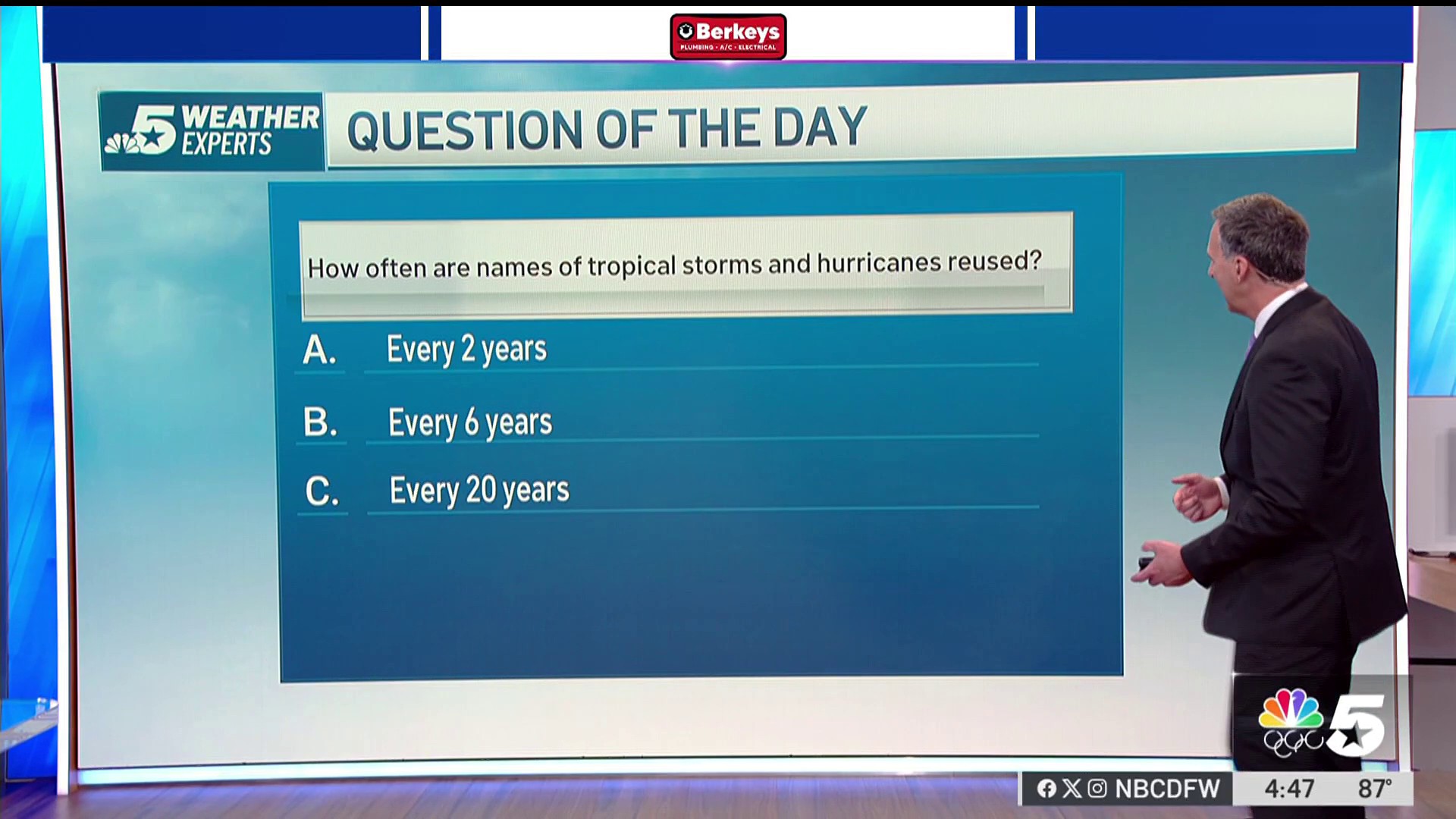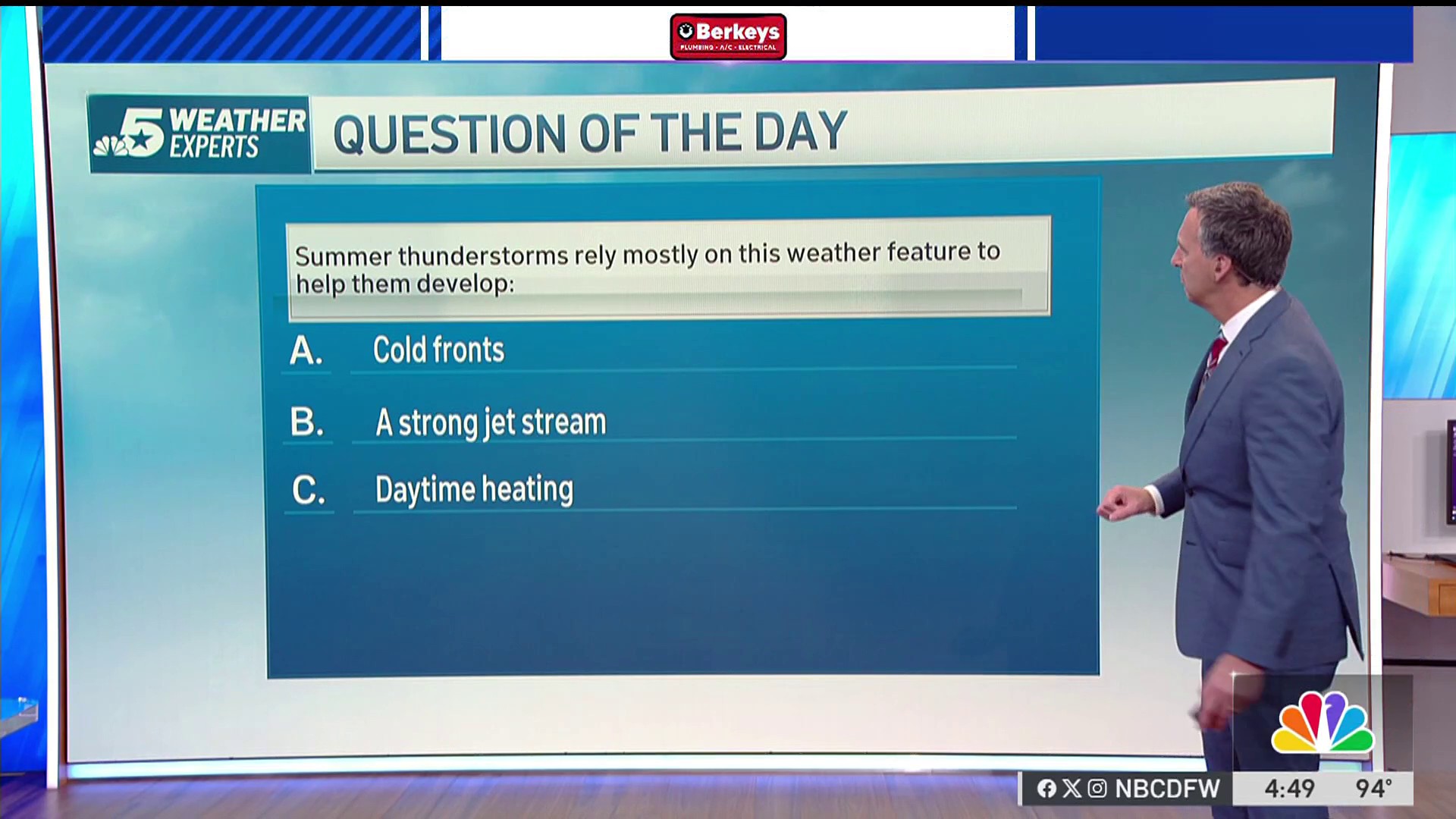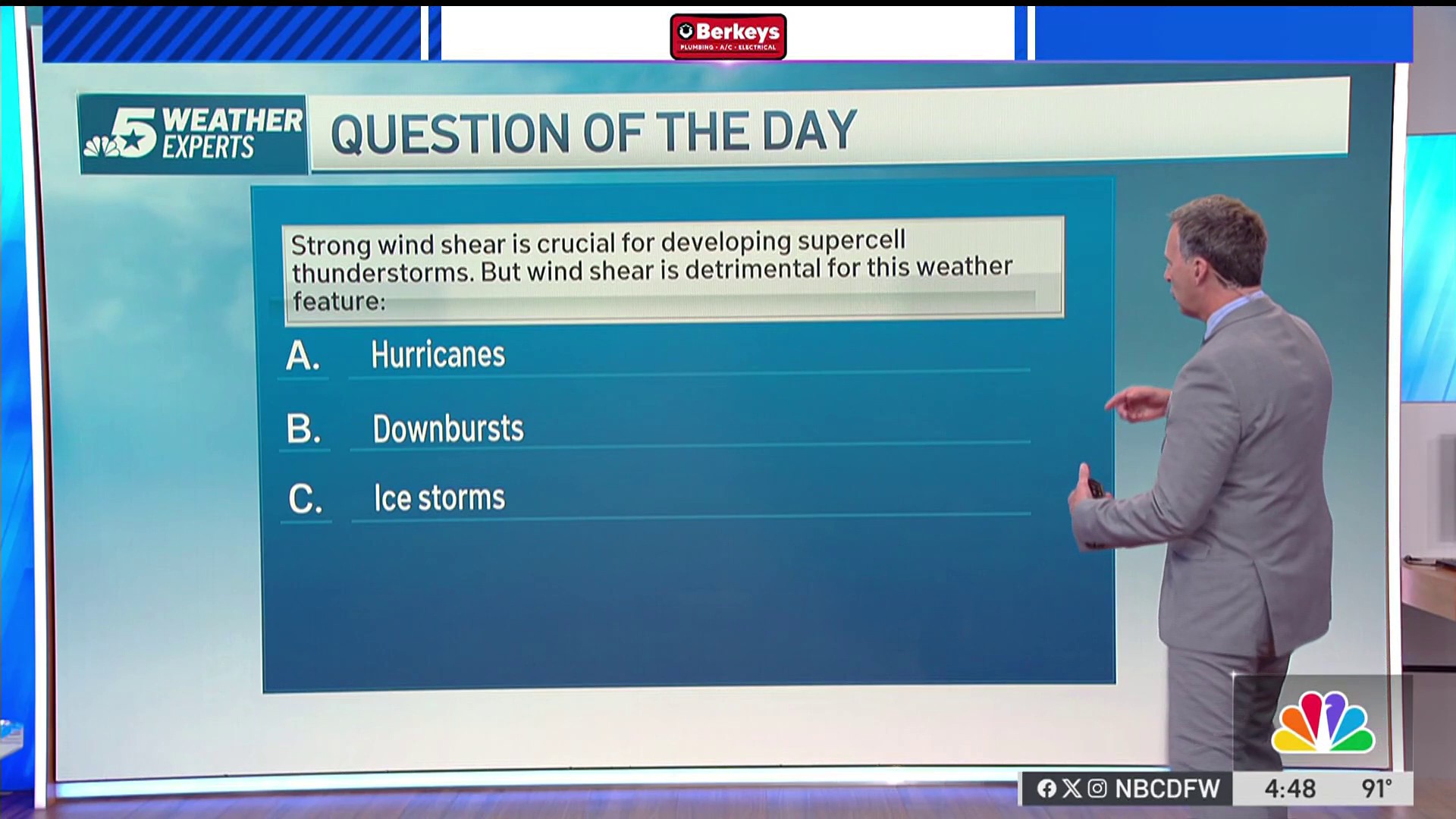
The summertime sizzle is here and it's possible the first triple-digit day of 2024 could arrive in North Texas this weekend or early next week.
The average date for the first 100-degree day is July 1.
In a typical year, Dallas-Fort Worth International Airport records 20 triple-digit days, though we have recorded twice the normal number in the last couple of years.

Get top local stories in DFW delivered to you every morning. Sign up for NBC DFW's News Headlines newsletter.
Despite a very wet spring, most of NBC 5's team of meteorologists are expecting a higher-than-normal number of 100-degree days this summer.
Meteorologist Samantha Davies is forecasting the highest number, with 52 triple-digit days. Meanwhile, Senior Meteorologist David Finfrock is anticipating an average summer, with 20 days hitting the century mark.
Chief Meteorologist Rick Mitchell expects 24 triple-digit days, while Kevan and Adrienne believe there will be a couple more with 25 and 27, respectively. Grant Johnston thinks we'll be just over the normal amount with 22 100-degree days.

NOAA's Climate Prediction Center does not provide an exact number of triple-digit days in this summer's forecast, but they also expect above-normal heat.
Be sure to check back at the end of the summer for final heat numbers.

HEAT SAFETY TIPS
With heat like this, you'll want to take precautions and be prepared.
Drink plenty of fluids, stay in an air-conditioned room, stay out of the sun, and check up on relatives and neighbors to ensure they stay cool.
Young children and pets should never be left unattended in vehicles. According to the National Safety Council, if it's 95 degrees outside a car's internal temperature could climb to 129 degrees in 30 minutes. After just 10 minutes, temperatures inside could reach 114 degrees.
A child's body temperature heats up three to five times faster than an adult's, and heatstroke can begin when a person's core body temperature reaches 104 degrees. According to the Texas Department of State Health Services, a core temperature of 107 degrees is lethal.
Take extra precautions if you work or spend time outside. When possible reschedule strenuous activities to early morning or evening. Know the signs and symptoms of heat exhaustion and heatstroke. Wear lightweight and loose-fitting clothing when possible. The Occupational Safety and Health Administration recommends scheduling frequent rest breaks in shaded or air-conditioned environments to reduce risk during outdoor work. Anyone overcome by heat should be moved to a cool and shaded location. Heatstroke is an emergency! Call 911. The CDC has more information on heat-related illnesses.
Take care of your pets by providing fresh, cool water and shade. Also, pets should not be left outside and unattended for too long. It's too hot and they need to be brought inside.




